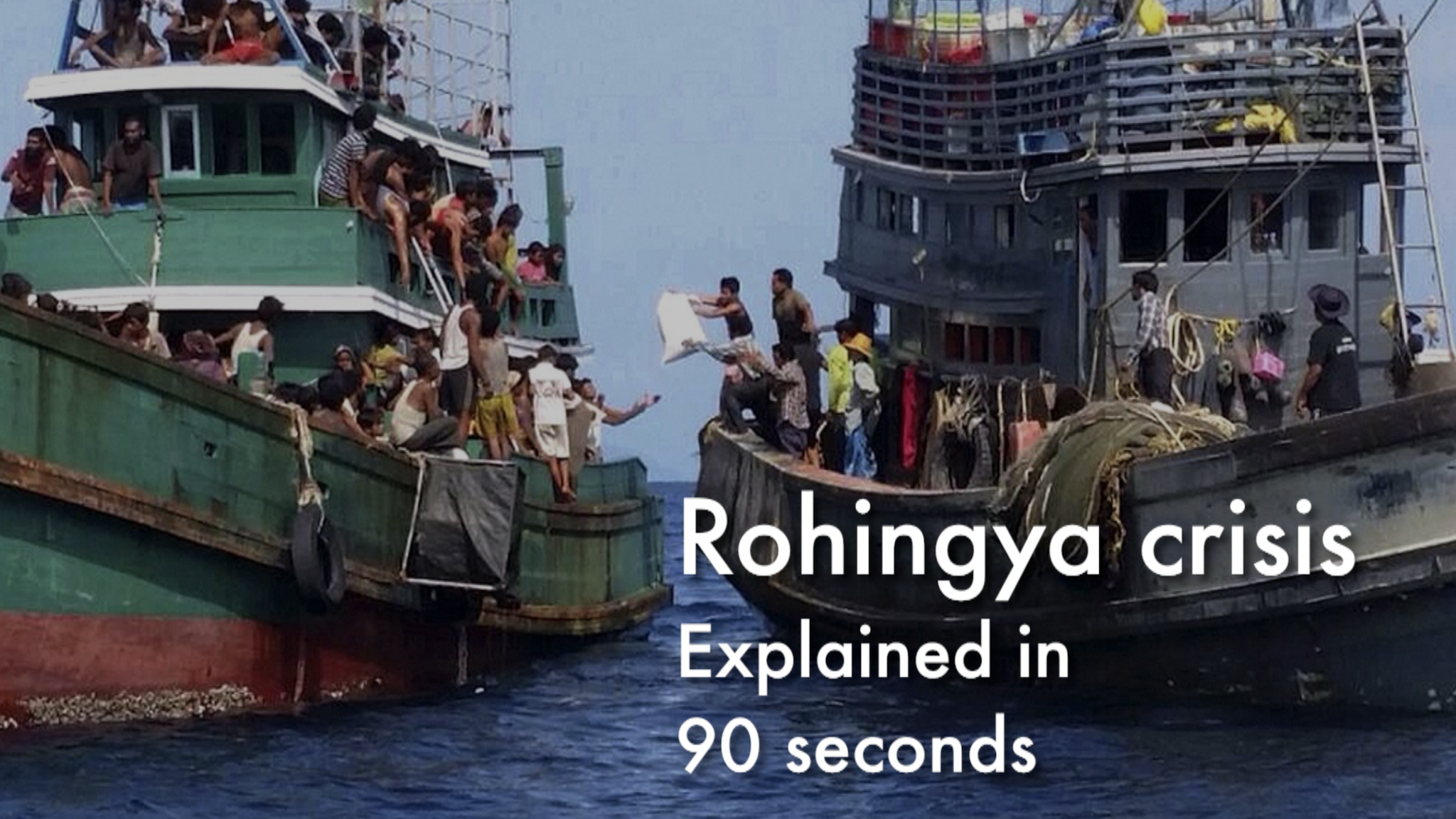Myanmar army fires on Rohingya villages in Rakhine region
- Published
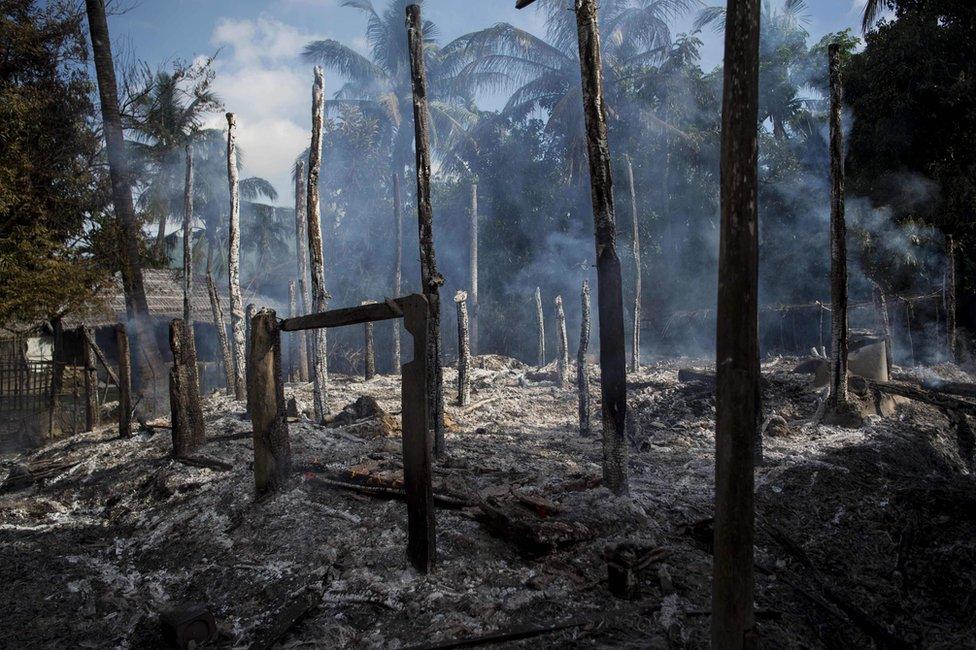
Burnt houses could be seen in Rakhine when media visited last month (image from 14 October)
The government of Myanmar (Burma) has admitted firing on villages occupied by the Rohingya Muslim minority with helicopter gunships.
State media say two soldiers and six attackers died in clashes after an ambush on troops, which led to air support being called in.
There are reports of villages burning in the northern region of Rakhine.
Photos released by Human Rights Watch seem to show charred villages, with the group reporting 430 burnt buildings.
The satellite photos were taken between 22 October and 10 November, following reports of fighting and civilians fleeing last month.
Rohingya activists say the government is trying systematically to drive the Muslim minority from their villages.
Attacking the Rohingya is a popular move for the military, the BBC's Jonah Fisher reports from Myanmar's largest city, Yangon.
They are disliked by many, if not most, Burmese who consider them illegal immigrants from Bangladesh, our correspondent says.
Glimmer of hope for Myanmar's Rohingya?
Media barred
The latest outbreak in fighting was triggered by an attack on three police checkpoints just over a month ago.
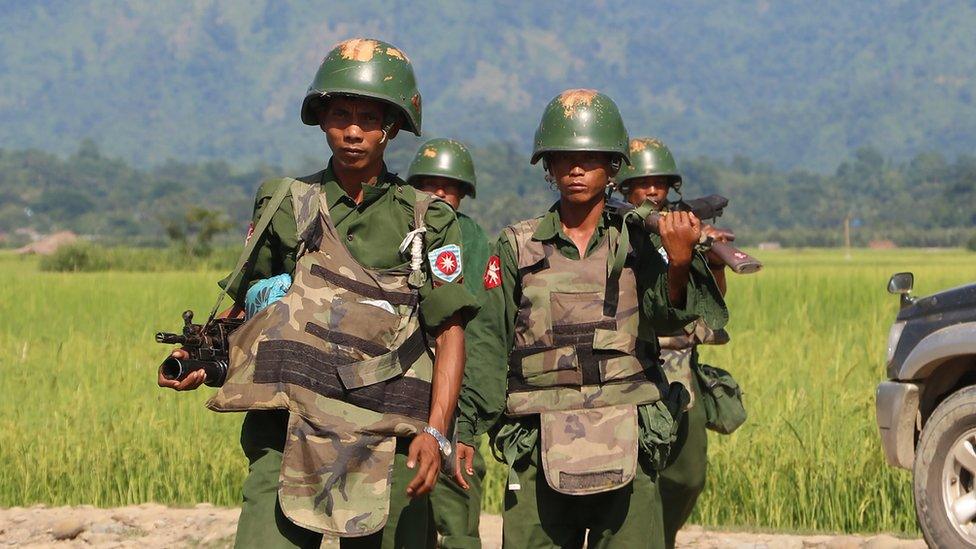
Tension has been high in Rakhine between security forces and villagers
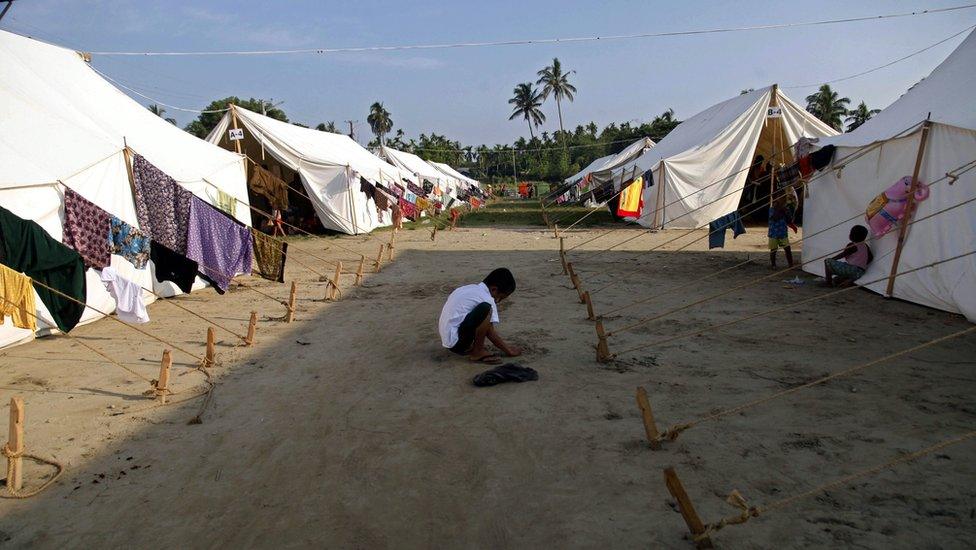
Fighting in Rakhine displaced hundreds of people last month
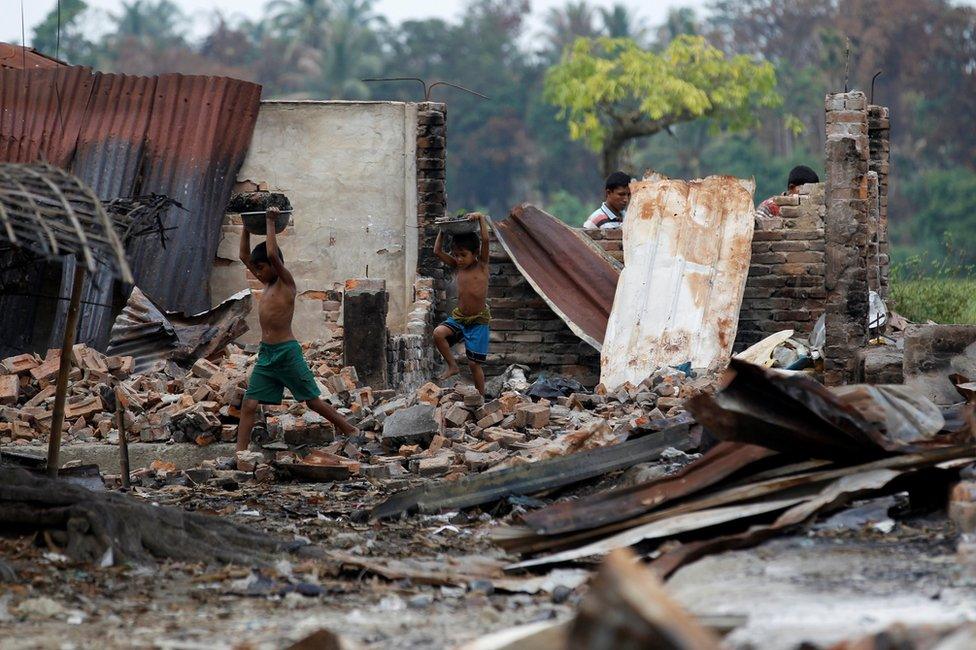
Homes were burnt down last month
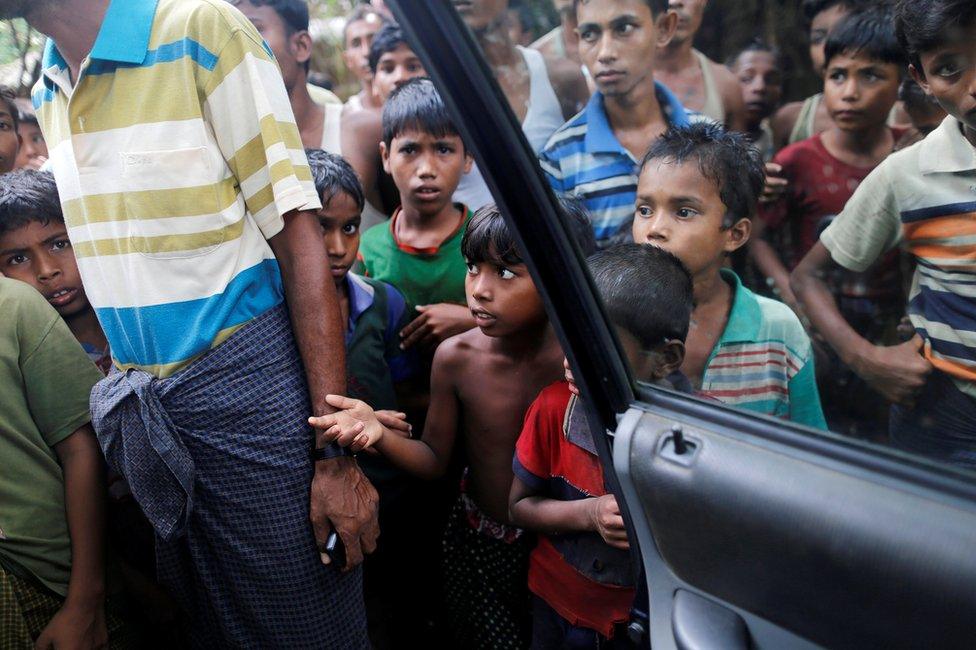
Concern is growing for civilians in the conflict zone
The Burmese government is not allowing independent journalists into Rakhine, so it is impossible to verify claims about the scale of the fighting.
According to the latest official statement on Saturday, troops were ambushed and then clashed several times with armed men, presumably Rohingya Muslims, equipped with guns, knives and spears.
At one point, when faced by about 500 men, the soldiers called in air support and two helicopter gunships fired on the Rohingya village.
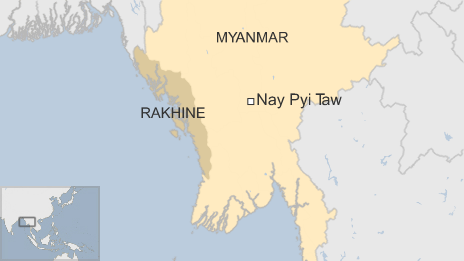
Casualty figures vary widely, our correspondent says.
Brad Adams, the Asia director for Human Rights Watch, said the new photos, external showed "widespread destruction" that was "greater than we first thought".
"Burmese authorities should promptly establish a UN-assisted investigation as a first step toward ensuring justice and security for the victims," he said.
The government - led by Aung San Suu Kyi - talks of "clearance operations" as part of the search for the attackers.
- Published24 August 2016
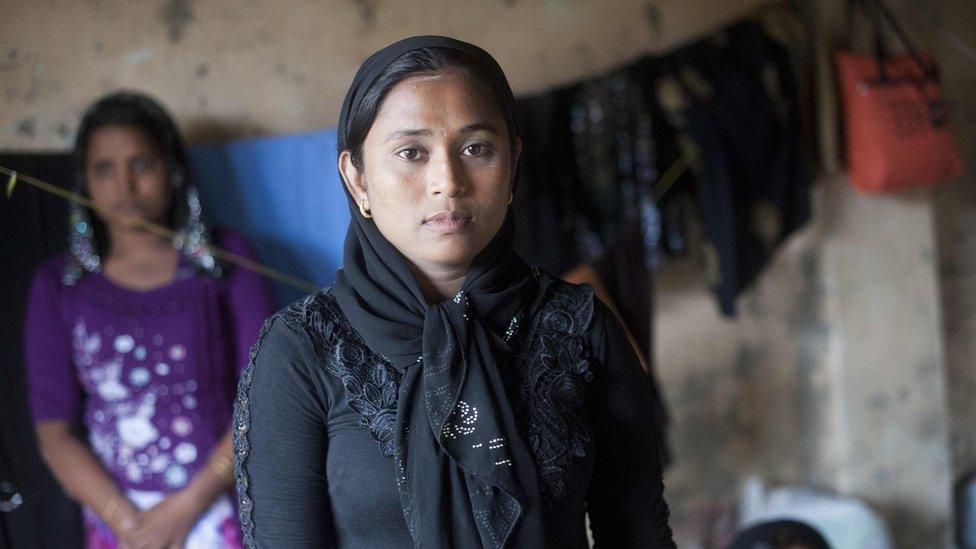
- Published6 November 2015
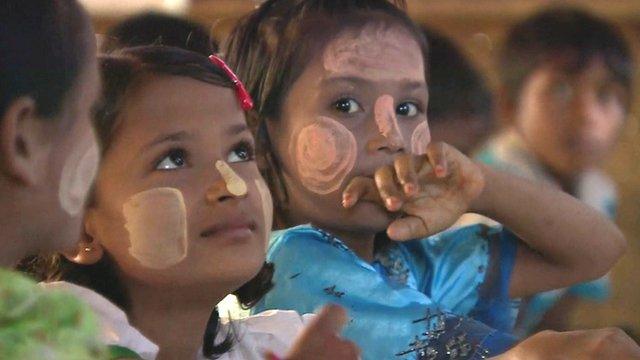
- Published10 June 2015
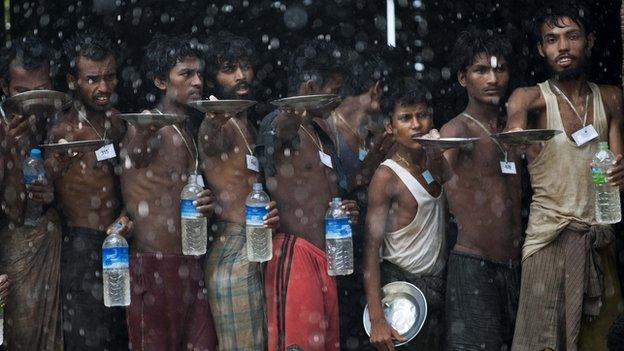
- Published20 May 2015
